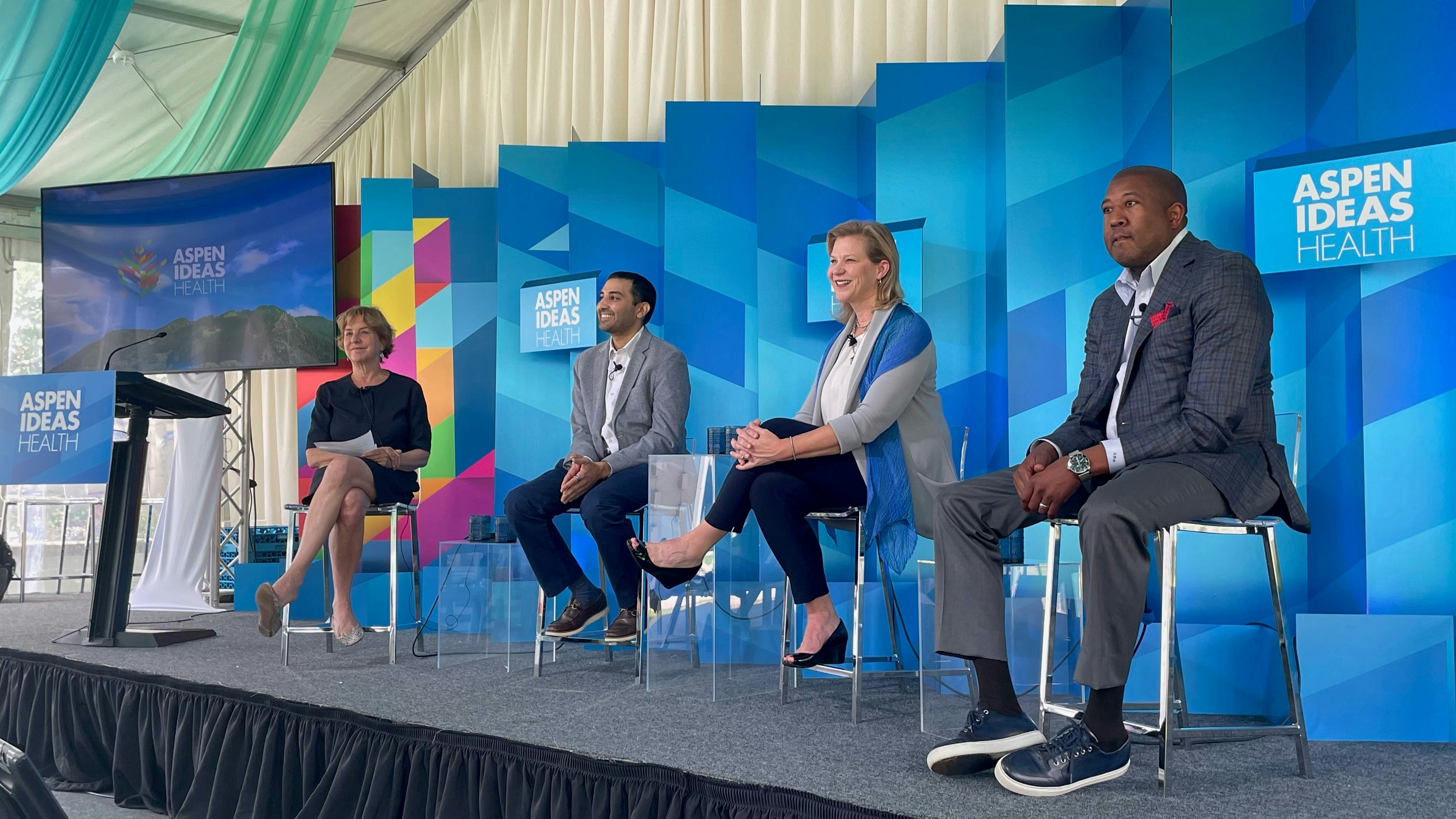

By Lisa Earnhardt, Executive Vice President, Medical Devices, Abbott
Over the past century, the health industry has produced marvels of innovation that have dramatically changed human health forever. Medical devices like stents and heart valves, advanced medical diagnostics, and effective medications and vaccines have enabled people to manage formerly debilitating conditions and live full and active lives.
Despite these advancements, many people who could benefit from these solutions are left behind. Overburdened health systems, rising healthcare costs, worker shortages and other social and economic barriers are driving a wedge between many people and the care they need. It has become increasingly clear that scientific innovation alone is not enough to solve the problem of access to care.
I was privileged to participate in an inspiring panel discussion at Aspen Ideas: Health with Chuck Henderson, CEO of the American Diabetes Association (ADA), Sonak Pastakia, Professor at Purdue University’s Center for Health Equity and Innovation, and the Aspen Institute’s Vivian Schiller. Our conversation centered on what’s possible when we put people first and partner with others to make change happen. We all agreed that fostering greater access to health is a team sport that will require new approaches and close collaboration.
Innovating for access and affordability
For years, the health industry has focused on expanding the realm of what’s possible, but today, we must shift our focus toward expanding what’s practical. What’s needed today is to create new innovations with both effectiveness and access as equally fundamental design objectives.
At Abbott, advancing access and affordability in health is at the heart of our goal to improve the lives of 3 billion people every year by 2030. It’s an ambitious challenge to take on, but it’s one we’re committed to tackling by changing how we innovate and partner with others to break down barriers to care.
We’re starting with how we create health technology — using principles across our organization to intentionally design for access and affordability and leaning into ways we can democratize, decentralize and digitize care. This means creating more accessible, personalized and convenient products, delivering care where and when it’s needed, and connecting people with timely, accurate and actionable health information to ensure our technologies have the greatest impact.
Abbott’s rapid COVID-19 antigen tests are a great example of democratized, decentralized and digitized health technology in action. My colleagues in our diagnostics business knew from the beginning that COVID-19 tests would be required for different settings, including non-traditional healthcare environments like drive-through testing sites, schools and workplaces. We needed to create a portable, highly accurate, affordable, and easy-to-use test that could be manufactured in large quantities to reach more people where and when they needed testing, including at home. We developed BinaxNOW, one of the most popular at-home COVID-19 tests available at retailers, local pharmacies and grocery stores so that families across the U.S. had access to affordable and reliable test results within minutes. And the accompanying NAVICA app gave organizations the ability to quickly and securely send and share testing information so people could confidently return to work, school and other gathering places.
Even before the pandemic, Abbott was rethinking innovation during the development of our continuous glucose monitoring technology used by people living with diabetes. When developing our FreeStyle Libre system, we took steps from R&D to manufacturing to delivery to make this revolutionary technology more affordable and available. We designed a wearable sensor that transmits real-time actionable information to a user’s phone, and created a high-speed, high-tech, precision manufacturing process to ensure we could offer it at a price 70% less than other continuous glucose monitoring systems. FreeStyle Libre technology made continuous glucose monitoring affordable, and has now improved the lives of more than 4 million people across more than 60 countries.
Advancing health equity through partnership
We also need to think beyond product innovation to address social issues that often stand in the way of access. To that end, partnerships are vital to break down barriers, help educate people about their health and foster greater access to the latest health technologies — all to empower people, especially those in under-resourced communities, to live healthier lives.
During the Aspen Ideas panel, Chuck Henderson and I talked about how the ADA’s Health Equity Now (HEN) platform is working to do just that — and drive meaningful, lasting change. As HEN’s first anchor sponsor, Abbott made a three-year, $5 million commitment to support advocacy and community initiatives that champion the right of all people with diabetes to access better care and the latest medical advances, including continuous glucose monitoring. A pilot community program is under way in Columbus, Ohio, and we are hopeful that this partnership will help us better understand and ultimately lessen health disparities for people of color living with diabetes.
Sonak Pastakia echoed the need for partnerships to address health inequities and emphasized the need to look beyond the health condition itself and more broadly at the root causes of poor health within communities. He said the best care is designed to treat people, not patients. The success of this people-first, holistic care approach is evident in Sonak’s work with AMPATH in Kenya, which provides HIV and diabetes care alongside targeted efforts to tackle economic and social challenges in local communities, such as creating peer groups that provide produce to address food insecurity, or microfinance loans to people who need them — serving as a model for addressing real-life challenges that impact health.
Delivering a healthier future
Achieving the type of large-scale impact needed to break down barriers to care for all people requires a shift in thinking. Innovative business approaches, new models of delivery and meaningful partnerships are a few ways we can make change happen. Whether we are innovators, marketers, healthcare professionals or policymakers, we all have a role to play. Imagine the collective impact we can have when we work together to shape the future of health — because healthcare doesn’t work until it works for all.
__________________________________________________
The views and opinions of the author are their own and do not necessarily reflect those of the Aspen Institute.





